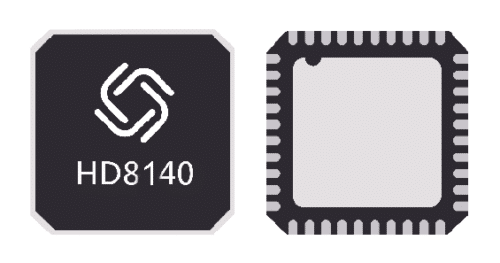The new series features a highly integrated chip with dual microprocessors and GNSS capabilities, ensuring precise positioning and low power consumption for diverse applications.

Designing integrated RF and baseband SoC chips is crucial in determining the chip’s performance, sensitivity, power usage, dimensions, and cost. These factors, influenced by the design process, are key to the competitive edge of navigation and positioning terminal products. Consequently, companies focus on advanced integration, enhancing performance, and comprehensive power management in developing Beidou chip technology.
The recently introduced HD8140 series by Allystar is built on the advanced CYNOSURE IV SoC architecture. This architecture consolidates dual microprocessors, multi-band multi-system GNSS RF and baseband, two memory units, an intelligent power management unit, and peripheral interfaces into one chip. The design boasts high integration, strong functionality, low power usage, and a compact form. As a result, users can anticipate precise sub-meter level positioning accuracy, enhanced sensitivity, better resistance to jamming and multipath effects, and reduced power consumption.
Furthermore, the HD8140 series offers optimal support for existing differential services, making it suitable for global use. The series is ideal for various applications, including mobile phones, wearable technology, unmanned aerial vehicles, vehicle navigation and management, autonomous driving, marine navigation, GIS data collection, and engineering surveys.
In the first HKMA Global Innovation Award for 2022/23, Allystar Technology Co., Limited, excelling in BeiDou navigation chipsets, distinguished itself as the leading candidate from the final ten after several evaluation stages by the judges. Allystar achieved the first rank, securing the Innovation Organizations Award – HKT Innovation Champion of the Year and receiving the Awards of Excellence in Product and Service Innovation for SMEs.
For more information, click here.






